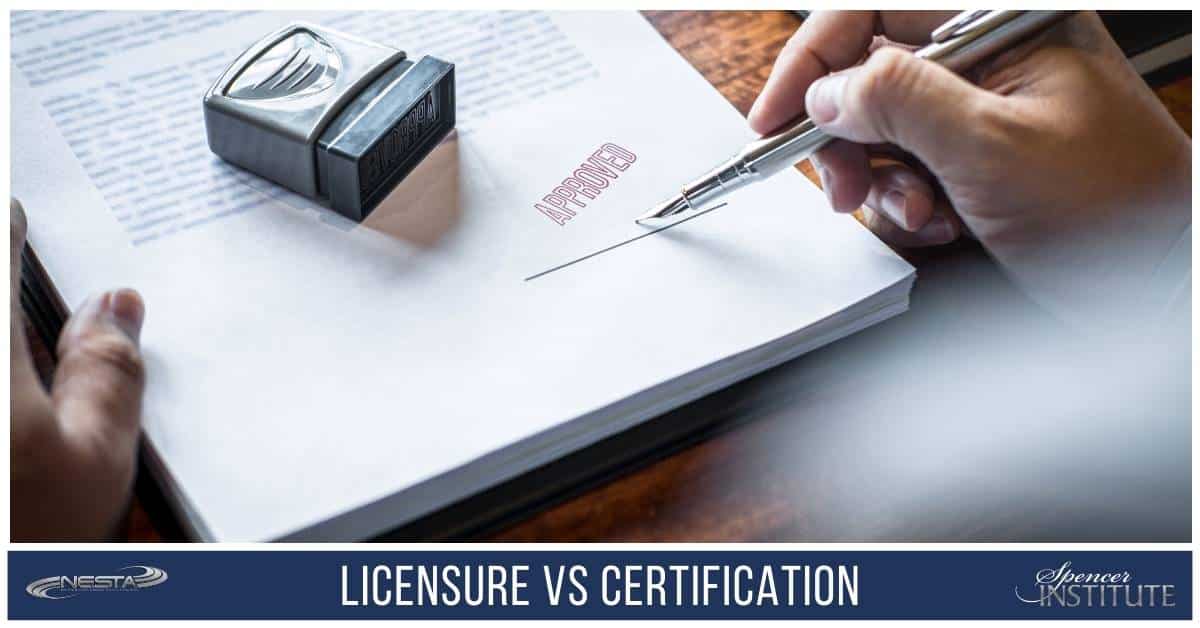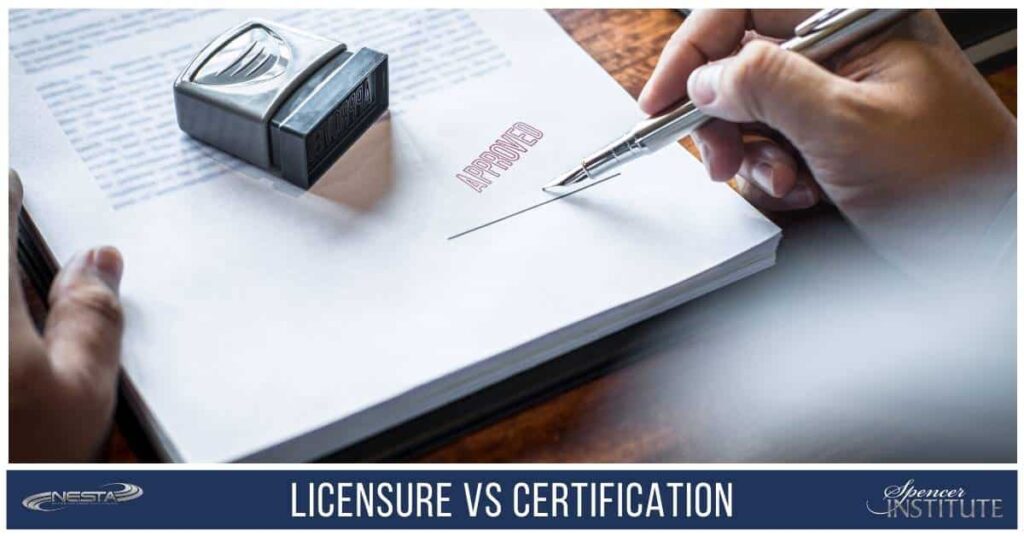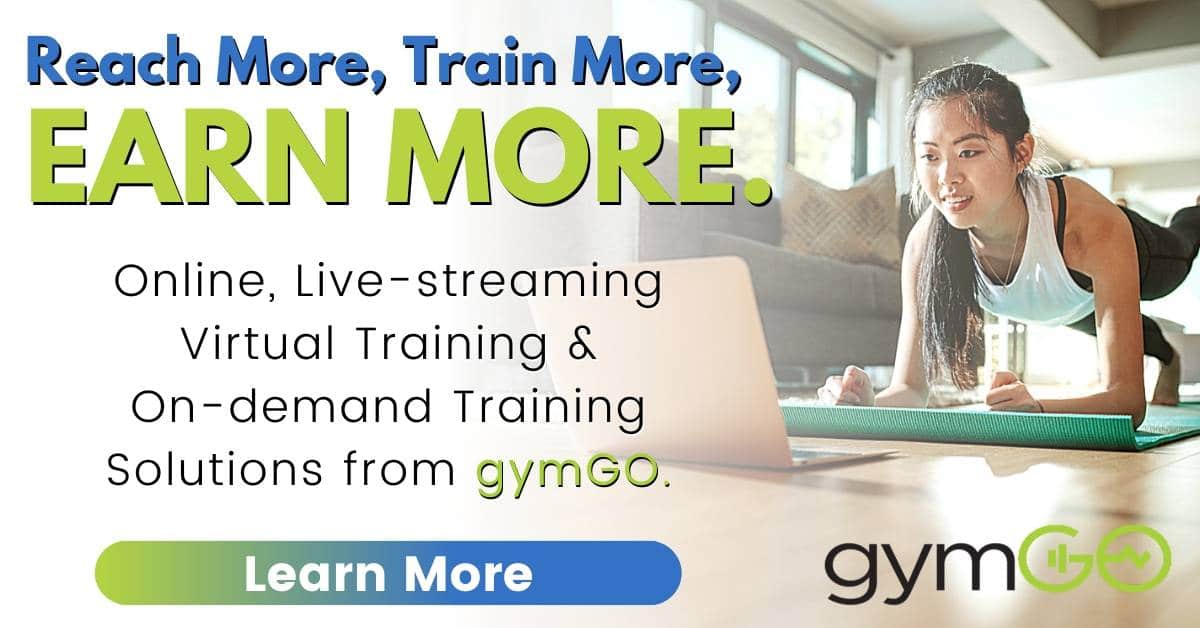Training Certification vs Business License

With the rise of at-home and online personal training and coaching businesses, many people are wondering if they need a business license to run an at-home or online health coaching or personal training. Does that sound familiar? Are you in that boat? If so, here is what you need to know!
What is the Difference Between a Certification and a Business License?
Since our start, the NESTA team has received (and continue to receive) questions from past students and new students about the difference between a training or coaching certification and a business license.
A business license allows you to operate a business within a city, county, or state. A business license approves your engagement in a specific business in a certain jurisdiction. When applying for a business license, you must provide the name of your business. For this reason, it makes sense to form your company first so you can provide the approved entity’s name on the license application, rather than having to change it (which could carry a fee).
It is important to note that obtaining a business license is not the same as forming an LLC or other legal entity for your business. An LLC provides an official, legally-recognized business entity. Forming an LLC effectively makes your business a company rather than a sole proprietorship.
As much as a certification isn’t compulsory, it is in your best interest to earn one because it gives you an edge over other professional trainers and coaches and also makes you feel like your expertise and profession is really legitimate.
An education and certification from an institution like NESTA shows that you have a certain level of competency and knowledge and have passed an exam to demonstrate just that. Certifications are awarded by an independent body, often trade or industry associations, and usually involve passing a test or examination process.
NESTA certifications are accredited, approved and recognized by a range of organizations including the National Commission for Certifying Agencies (NCCA) accreditation for our Personal Fitness Trainer Certification.
Because certifications are independently verified, employers, customers, and clients often use them to verify whether an applicant has the specific skills or competencies needed. In particular, employers use certifications when the skills involved are technical and don’t align with traditional degrees.
Does a Trainer Need a Business License?
The market for training and coaching is large and includes people of all ages, backgrounds, and goals. Trainers and coaches provide guidance, teach organizational skills, and create order in the lives of their clients. Some trainers, like a Sports Injury Specialist or Sports Nutrition Specialist, also work in the sports field, helping clients become more proficient in their chosen sport.
Yes, a stand-alone office space can be nice, but many coaching or consulting businesses can be run from a coffee shop, home, or hotel as long as the coach has a phone, computer, and client list. While training and coaching are flexible businesses, if it’s based in a city that requires business owners to obtain a license, a private trainer or coach must comply.
Register your business as a limited liability company (LLC) or other official entity beyond sole proprietor. This will protect your personal assets from your business assets if you happened to get sued. Obtain a business license and other business-related requirements, such as zoning approval if you see clients in your home.
Licenses and Permits You Should Know About
Business-related licenses and permits are issued at all levels of government. There are over 40,000 separate licensing jurisdictions in the United States, and each has its own particular licensing requirements.
We have put together a list of the following is a discussion of some of the most common types of licensing and permit requirements that could affect personal training or nutrition coaching businesses.
NOTE: This list is by no means exhaustive, and it is important to check with government agencies at all regulatory levels to ensure that your business has obtained all necessary licenses and permits.
Business Licenses
There are many types of licenses. You need one to operate legally almost everywhere. If the business is located within an incorporated city’s limits, a license must be obtained from the city; if outside the city limits, then from the county. For more information contact the county or city office in your area.
Property Use Permits
If you start a business that involves manufacturing, or if you decide to begin operating a business out of your home, depending on your location you may need to obtain a land-use permit from your city or county’s zoning department.
Building Permits
If you are constructing a new building, or expanding or renovating an existing building in order to operate your business, you will most likely need to obtain a building permit from your city or county. The process may require that you submit a detailed set of plans to the department prior to the approval of the work and issuance of the permit.
Certificate of Occupancy
If you are planning on occupying a new or used building for a new business, you may have to apply for a Certificate of Occupancy from a city or county zoning department.
Health Department Permits
These permits are most often required for businesses involved in the preparation and/or sale of food, among other types of businesses. For example, if you have received your Fitness Nutrition Coach certification or Personal Fitness Chef certification and plan on providing meal preparation services for clients, you may need to look into obtaining a health department permit.
Licenses Based on Type of Product Sold
Some state licensing requirements are based on the type of product the business sells. For example, most states require special licenses before a business may sell liquor, lottery tickets, gasoline or firearms.
Employer Identification Number
Most businesses are required to obtain a federal employer identification number (or EIN; sometimes called a tax identification number) from the Internal Revenue Service (IRS). Your business may also need to acquire a similar tax identification number from your state’s department of revenue or taxation.
Running a personal training business is a lot like trying to improve yourself. You need a detailed plan to give yourself the best chance of success. A company without a business plan is like a client without a routine or program. Need help with your business plan for your coaching or consulting business?
Steps to Starting a Training/Coaching Career
Check out this list of fitness careers that let you follow your dreams which includes what it takes to start a career in personal fitness training. This is your most affordable and fastest way to become a highly qualified personal trainer.
Is your re-certification coming up? Learn more about earning your CEU credits. You can find the full list of CEU courses here.
If you are ready to start your online personal training or coaching business, don’t forget to learn more about our online coaching course.
One of the most popular and fastest ways to get started working with clients while you travel is to coach/train online. You will want to learn more about GymGo. GymGo lets you work with clients and make money in different ways: online, live-streaming virtual training & on-demand training. Use our link to get yourself a free 14-day trial >>> https://www.gymgo.com/nesta
Remember, NESTA and Spencer Institute coaching programs are open to anyone with a desire to learn and help others. There are no prerequisites!
That’s it for now. Take action!
PS: Click here to see many helpful business/career resources
NOTE: When you take your fitness business home, you can also work with clients outdoors as you operate your business from your kitchen table and even coach clients online from home.







